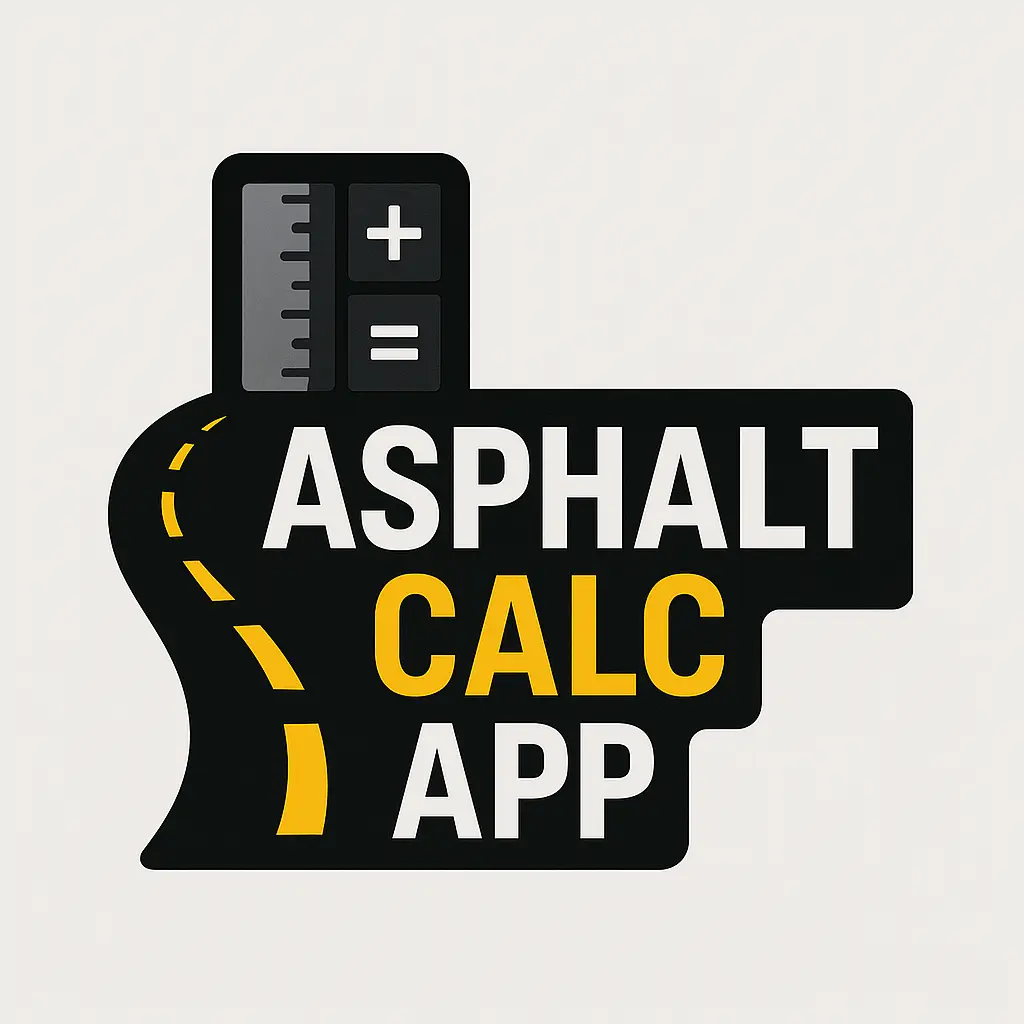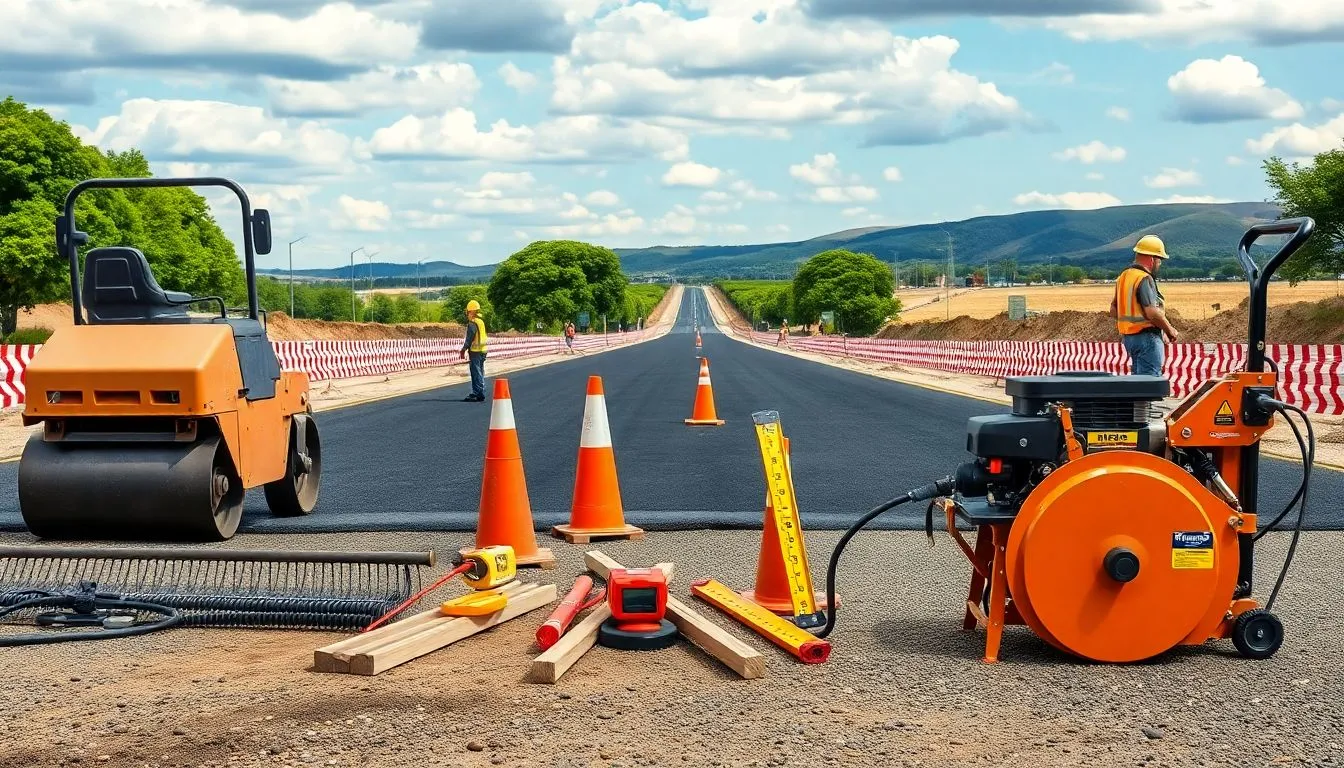Introduction
Asphalt paving plays a key role in constructing roads, driveways, and parking lots. Proper paving ensures safety, durability, and a smooth surface for years to come. But good results don’t happen by chance—using the right tools makes all the difference.
From preparing the ground to finishing touches, specialized equipment supports every step. Without proper tools, projects risk cracks, uneven surfaces, and early wear. This guide outlines the essential tools required for efficient and long-lasting asphalt paving projects.
Essential Tools Needed for Asphalt Paving
Why the Right Tools Matter in Asphalt Paving
Having the correct tools is like having a good recipe for success. Proper equipment improves efficiency, consistency, and extends the pavement’s life. The tools are categorized into four key areas:
- Site Preparation
- Paving
- Finishing and Compacting
- Safety and Maintenance
Let’s explore each in detail.
1. Site Preparation Tools
Surveying and Measuring Equipment
Accurate measurement is the foundation of a good paving job. Tools like:
- Laser levels
- Measuring wheels
- Survey stakes and tapes
These ensure precise layouts that prevent future structural issues. Learn how to calculate surface area using our Asphalt Calculator.
Excavation and Grading Equipment
Before laying asphalt, the base must be excavated and graded. Tools used:
- Excavators and skid steers
- Grading blades and box scrapers
- Plate compactors
“A strong base is key to resisting cracks and potholes.” — Professional Contractor
2. Paving Equipment
Asphalt Pavers
These machines lay hot mix asphalt evenly. Depending on the job size, you may need:
- Track-mounted pavers for stability
- Wheeled pavers for mobility
Brands like Volvo, Caterpillar, and Leeboy are industry leaders.
Screeds
Screed level and compact the asphalt as it’s laid. They can be:
- Fixed screeds for uniformity
- Vibrating screeds for tight compaction
Asphalt Rakes and Spreaders
For small areas and edges, use:
- Asphalt rakes
- Hand spreaders
These tools allow workers to control layer thickness and achieve uniformity.
3. Finishing and Compacting Tools
Asphalt Rollers
Compaction is vital. Types include:
- Steel drum rollers
- Pneumatic rollers
- Walk-behind models for small jobs
Proper rolling removes air pockets and strengthens the surface.
Hand Tools
For detailed work, use:
- Trowels and edgers for smoothing
- Hand tampers for compacting corners
Compaction Testing Devices
Ensure your pavement is properly compacted with:
- Nuclear density gauges
- Sand cone testers
These tools ensure structural integrity and longevity.
4. Safety and Equipment Maintenance
Personal Protective Equipment (PPE)
Safety gear is essential:
- Hard hats
- Gloves and boots
- High-visibility vests
- Respiratory masks
Follow OSHA asphalt safety guidelines to protect your crew.
Maintenance and Upkeep Tools
Regular maintenance keeps tools efficient. Essential items:
- Grease guns and lubricants
- Cleaning brushes
- Calibration tools
Create a maintenance checklist to avoid delays and breakdowns.
Final Tips for Equipment Selection
- Rent vs. Buy: Rent tools for small projects. Buy for repeated use.
- Quality Matters: Don’t compromise on core tools like rollers or pavers.
- Consult Pros: Talk to local contractors or suppliers for personalized advice.
Real-Life Example
A contractor resurfacing a 4,000 sq. ft. parking lot used a rented paver, steel drum roller, and a vibrating screed. The project was completed in 3 days, with minimal cracking after 12 months. A strong base and quality compaction tools were key to success.
Conclusion
Having the right tools for asphalt paving ensures better outcomes in quality, safety, and efficiency. From laser levels to nuclear gauges, every piece plays a vital role. Invest wisely, follow safety protocols, and consult experienced pros. Whether you’re a homeowner or a contractor, well-equipped paving is the path to long-lasting surfaces.
FAQs
1. What are the most important tools for asphalt paving?
Asphalt pavers, compactors, screeds, rakes, and safety gear are essential.
2. Can I pave asphalt without a roller?
It’s possible to use patches with hand tampers, but rollers are essential for durability.
3. Should I rent or buy asphalt paving equipment?
Rent for one-time jobs; buy for long-term or frequent use.
4. How do I check asphalt compaction?
Use nuclear gauges or sand cone tests to check asphalt density.
5. What PPE is required for asphalt paving?
Minimum: gloves, boots, safety vest, helmet, and respiratory mask.

